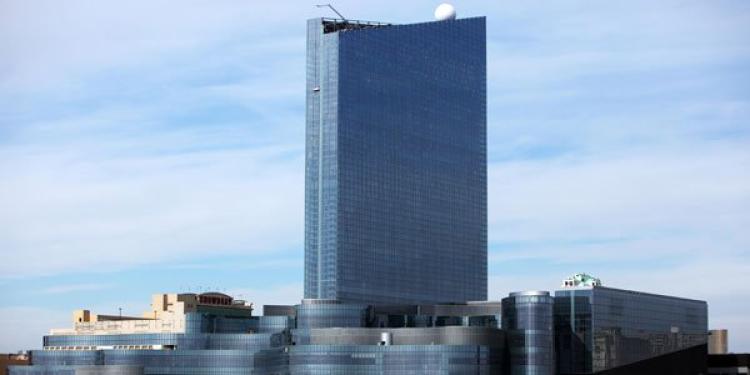The True Story on Why the Revel Casino Went Bankrupt
Posted: December 4, 2014
Updated: October 6, 2017

Born in the wrong place at the wrong time, the downfall of the Revel tells the sad story of Atlantic City’s demise.
While it takes decades to build an empire, even the grandest of kingdoms can collapse into nothingness in the blink of an eye. That is the fate befalling Atlantic City. In 2006 “The World’s Playground” earned a total of $5.2 billion in casino revenue, the highest recorded number since New Jersey legalized gambling in 1978.
Today, just eight years later, Atlantic City is a hollow, impoverished shell of its former self. Four casinos have declared bankruptcy in 2014 alone and thousands of the city’s low-skilled workers are now unemployed.
Few retain hope for a rebound; even Mayor Don Guardian recently declared that “the party is over.” Governor Chris Christie has little interest in attempting to prop up the city, focusing on his Presidential bid with Republican chances in 2016 looking good.
The quick but agonizing death of Atlantic City has received ample gambling news coverage. What hasn’t been explored, however, is how business went from booming in 2006 to hitting rock-bottom less than a decade later. And that story is best told by the Revel Casino, Atlantic City’s most ambitious project, and most colossal failure.
Morgan Stanley’s gamble on endless revelry
In late 2006 the investment giant purchased a plot of land for $74 million and tapped former Trump and Wynn guru Kevin De Sanctis to plan a new, ambitious and wholly original casino project: an overnight casino that would attract business travelers with upscale entertainment amenities, luxury spas, and fancy restaurants.
The Revel was to be more than a great casino, it was to define the future of Atlantic City. With two hotel towers, each containing 3,800 rooms, the casino was to project the visual effect of being sculpted out of the waves of the Atlantic Ocean. Taking a page out of Las Vegas’s book, the Revel was also to be the first Atlantic City casino with a wedding chapel.
Morgan Stanley was so bullish about this modern-day tower of babel that it put $1.25 billion into it. The unveiling was planned for late 2010, providing plenty of time to promote the project to gamblers and business people across the Eastern Seaboard.
Twin bombs crash the party
The executives at Morgan Stanley tragically failed to realize, however, that the regional casino industry was about to undergo a major change. For almost four decades Atlantic City’s casinos had been buoyed by monopoly status. With no other casinos of relevance in the region, gamblers had only one place to go. And that was AC.
• Revel is one of four AC casinos to go bankrupt in 2014
• AC casino revenue fell from $5.2 billion in 2006 to $2.9 billion in 2013
• More gamblers are choosing Philadelphia over Atlantic City
But by 2006, that warm, insulated, cash-laden bubble was about to burst. Construction crews hadn’t yet broken ground on the Revel when Pennsylvania took advantage of liberal American gambling laws and legalized slots-only casinos in September. New York followed suit the following year. Atlantic City casinos would soon face the prospect of real competition.
Still, business was good. Citywide casino revenue finished just under the $5 billion mark in 2007, and the Revel was offering something unique. The following year, however, was when things started to look really bad.
By the time construction crews had completed the foundation of the Revel in January of 2008, house prices had declined across the US. By September Lehman Brothers had filed for bankruptcy and the country was officially in the throes of “The Great Recession.” Few industries were hit harder than gambling and hospitality.
Atlantic City’s annual casino revenue fell to $3.9 billion in 2009 and Pennsylvania legalized table games in early 2010. Fewer people had money to wager at the tables, and many of those who did were choosing to go to Philadelphia. The double-whammy of fiercer competition for a smaller market sparked Atlantic City’s inexorable decline and spelled doom for the Revel.
Morgan Stanley jumps ship
Unemployment in Atlantic City had hit 13% by mid-2010. With the Revel only 60% finished, Morgan Stanley decided that it had made a bad investment and put its stake up for sale. But while the chief investor had pulled out, De Sanctis decided to stick with the project, albeit in a smaller form.
Construction continued and the Revel finally opened its doors in April, 2012, with a Beyonce concert to kick things off. But while the casino was both unique and luxurious, it couldn’t succeed in getting people through the doors. Monthly revenue came in at only $8 million in January 2013, a year which was to be Atlantic City’s worst since 1989.
The casino never turned a monthly profit and made gambling news again by filing for bankruptcy in March 2013, less than a year after opening and with $1.5 billion in debt. The casino’s owner, Revel AC Inc., successfully put forward a reorganization plan but filed for bankruptcy again in 2014.
Today the Revel stands empty upon a gorgeous 20-acre plot of beachfront property. A massive investment made on the eve of financial crisis and casino legalization in Philadelphia, it never stood a snowball’s chance in hell. That, in a nutshell, is the story of Atlantic City. The bigger they are, the harder they fall.












